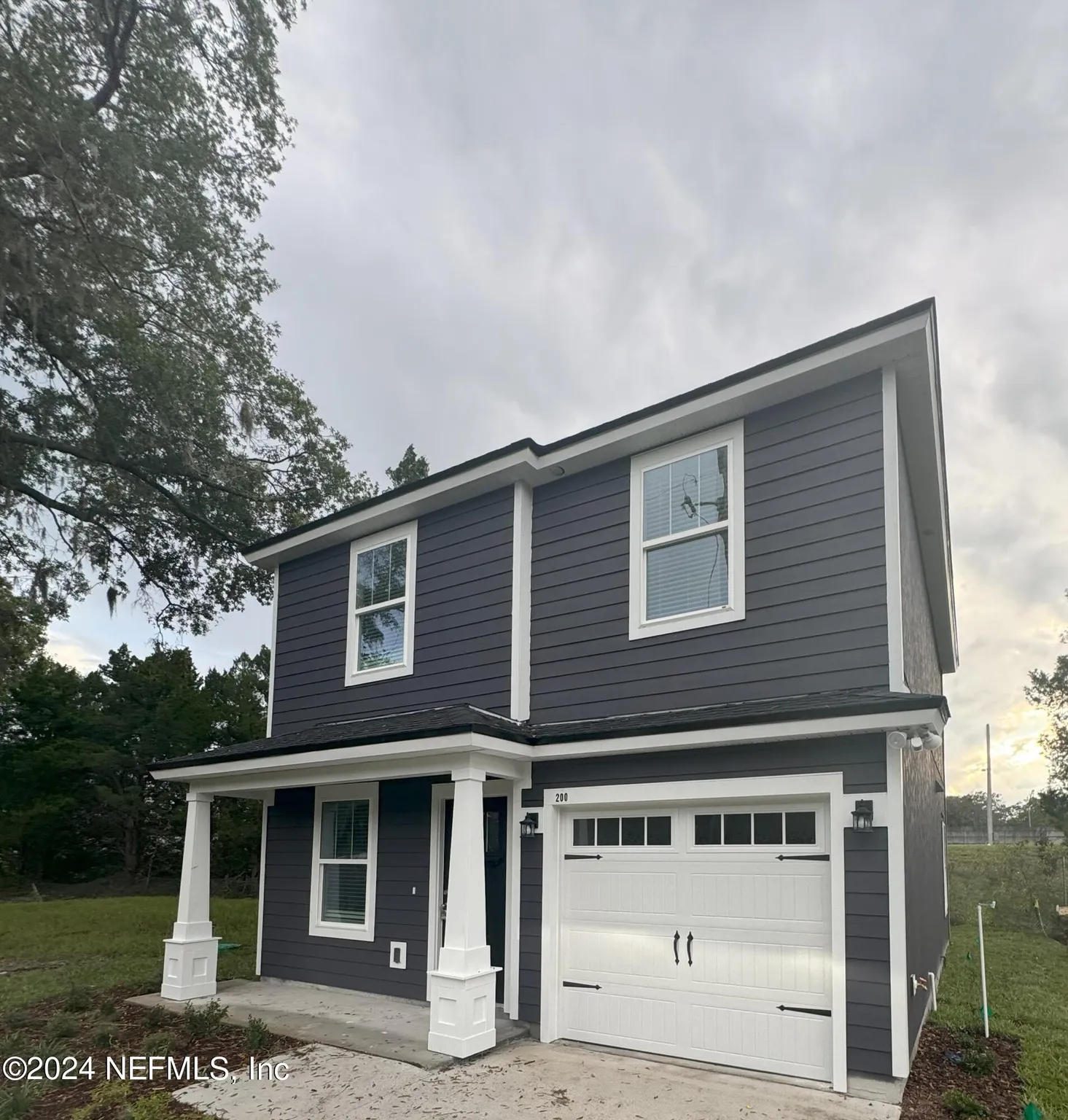“Had a price reduction! Circa 1900 in West Virginia.”
A Circa 1900 property in West Virginia could offer a lot of historical charm, especially with features typical of the time, like:
Victorian or Colonial Revival architecture: These styles were popular around that era, with high ceilings, ornate woodwork, and unique, handcrafted details.
Original fixtures and finishes: You might find vintage doors, windows, or even a fireplace that’s a century old.
Expansive property: West Virginia is known for its rolling hills, forests, and mountainous landscapes. It’s likely that the property could come with large acreage, possibly even a historic barn or outbuildings.
The price reduction might suggest that the property has been on the market for a while, or it could be an opportunity for someone to get in before the market heats up again. Properties in West Virginia tend to be more affordable compared to other parts of the country, but the value really depends on the location—rural, near a city, or nestled in the mountains?
If the home is in need of some TLC, it could be a project for someone who enjoys restoring historical properties, or it could be a more affordable alternative to newer homes in the area.
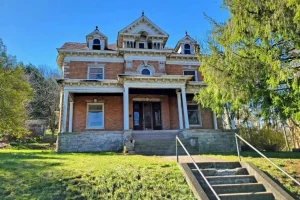
Historical Significance and Charm
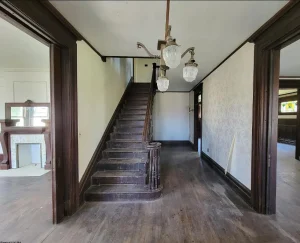
Architectural Features: Homes from this period often have distinctive architectural features that modern homes may lack, such as:
Steep, gabled roofs.
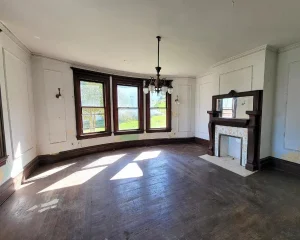
Hand-carved woodwork or staircases with intricate balustrades.
Transom windows, which are windows above doors.
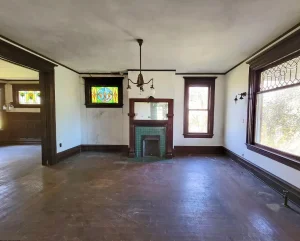
Crown molding and wainscoting.
Fireplaces with original mantels—sometimes marble or ornate tile.
The more original details the home has kept, the more valuable it could be historically. But they also might mean more work to restore.
Historical Value: Homes that are “circa 1900” could be part of a historical district or have connections to a significant local history. If the home was once owned by an important local figure, or if it’s in a historically rich area like Appalachia, this could add a lot of character and potential value.
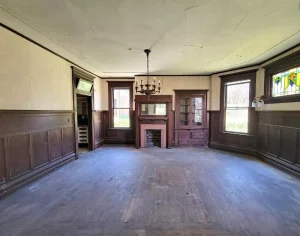
Property and Acreage
Land: West Virginia is known for its beautiful natural landscapes, so homes in rural or mountain areas might come with significant acreage. This could include:
Woodland for hiking or hunting.
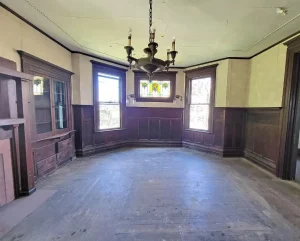
Farmland for those interested in agriculture.
Creeks or rivers for recreation or scenic beauty.
Larger properties might also have outbuildings like barns, sheds, or stables that could be refurbished for additional use (e.g., workshops, guest houses).
Potential for Expansion: With more space, there could also be room for expansion if you’re looking to renovate or add new structures.
Price Reduction Factors
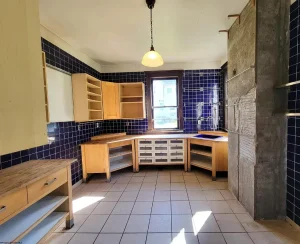
Market Conditions: The price reduction could be due to market conditions, or because the property has been on the market for a while. West Virginia’s housing market can fluctuate, with certain areas seeing slower growth, but also providing opportunities for buyers who are looking for value.
Condition of the Home: A price reduction could indicate that the home requires significant repairs or updates. Some issues to watch out for include:
Foundation problems or settling (common in older homes).
Roof damage or leaks (which could be costly to repair).
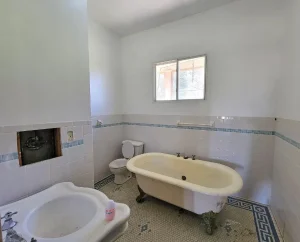
Outdated electrical or plumbing systems (homes from the early 1900s often have outdated wiring or pipework that needs replacing).
Insulation and energy efficiency could be poor, leading to higher heating and cooling costs.
Renovation Potential: On the flip side, price reductions might reflect a seller’s willingness to negotiate, or it might be a great opportunity if you’re prepared to invest in renovations. Old homes can often be turned into incredible modern living spaces with some love and care.
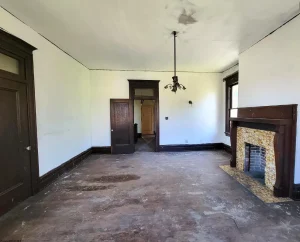
Location in West Virginia
Rural Areas vs. Proximity to Cities: West Virginia has some more isolated regions, but there are also homes close to cities like Charleston or Morgantown, where you can find a mix of urban and rural living. Depending on where this circa 1900 home is located, you might have:
Seclusion and privacy if it’s deeper in the mountains or countryside.
Access to amenities, if it’s closer to a town or city.
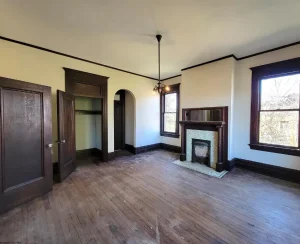
Recreational Opportunities: West Virginia is great for outdoor activities like hiking, fishing, and hunting. Properties near the Appalachian Mountains, New River Gorge National Park, or Canaan Valley can offer unbeatable natural beauty.
Restoration Considerations
If you’re considering a home that might need some work, here are some common restoration tasks you may face:
Preserving original architectural details: Salvaging the charm of a period home can be key to maintaining its character. Restoring features like hardwood floors, decorative plasterwork, or antique doors can increase the home’s value.
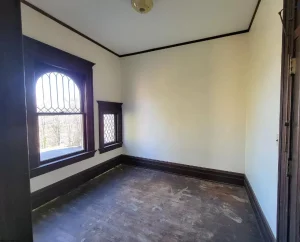
Energy efficiency updates: Insulation, windows, and modern HVAC systems can drastically improve comfort and reduce long-term utility costs.
Modern conveniences: Updating the kitchen or bathroom while keeping the historical feel might be a good investment. Open floor plans didn’t exist in homes built around 1900, so balancing modern living with period features can be a challenge.
However, historical tax credits or grants may be available if you’re working with a registered historic property. In West Virginia, some areas are eligible for these kinds of incentives for historical restorations.
Local Community and Lifestyle
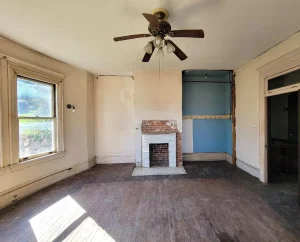
West Virginia’s Small-Town Charm: If you’re moving to a more rural area, you might experience the laid-back lifestyle that is common in much of West Virginia. Many towns in the state have a tight-knit community, and living in a historic home could make you part of that history.
Arts and Culture: West Virginia, while rural, has a surprising amount of cultural richness, with music, arts, and festivals celebrating Appalachian heritage. The state has a strong tradition of bluegrass music, crafts, and local history museums.
Investment Potential
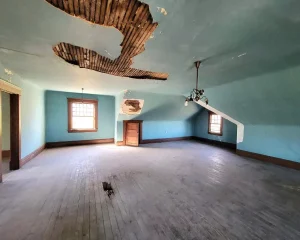
Equity Building: Homes that need renovations can often be bought at a lower price, but with the right improvements, they can be turned into high-value properties, especially if located in a desirable area. A circa 1900 home could become a historical gem with the right upgrades, especially if you’re in an area with strong real estate growth potential.
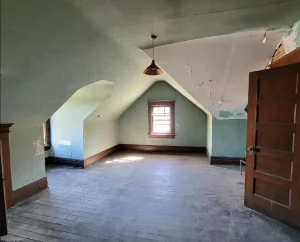
Vacation Rental or Airbnb Potential: If the property is located in a more scenic or tourist-friendly part of West Virginia, a restored historic home could be a unique vacation rental property. West Virginia has gained popularity with travelers looking for outdoor adventures, and a well-restored home could offer an unforgettable experience.
